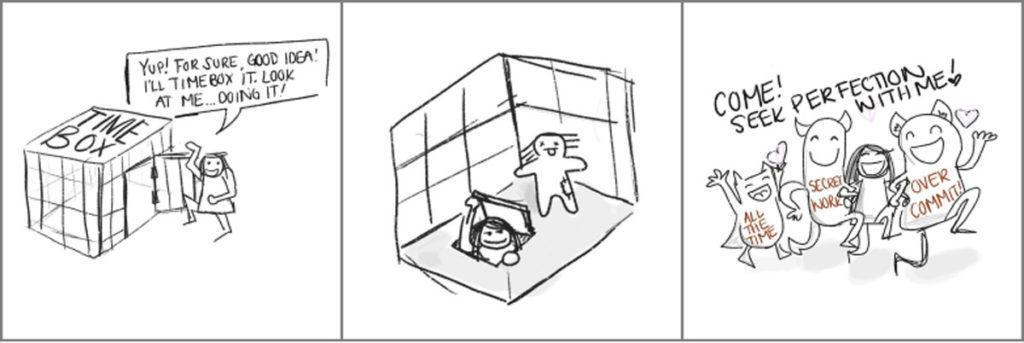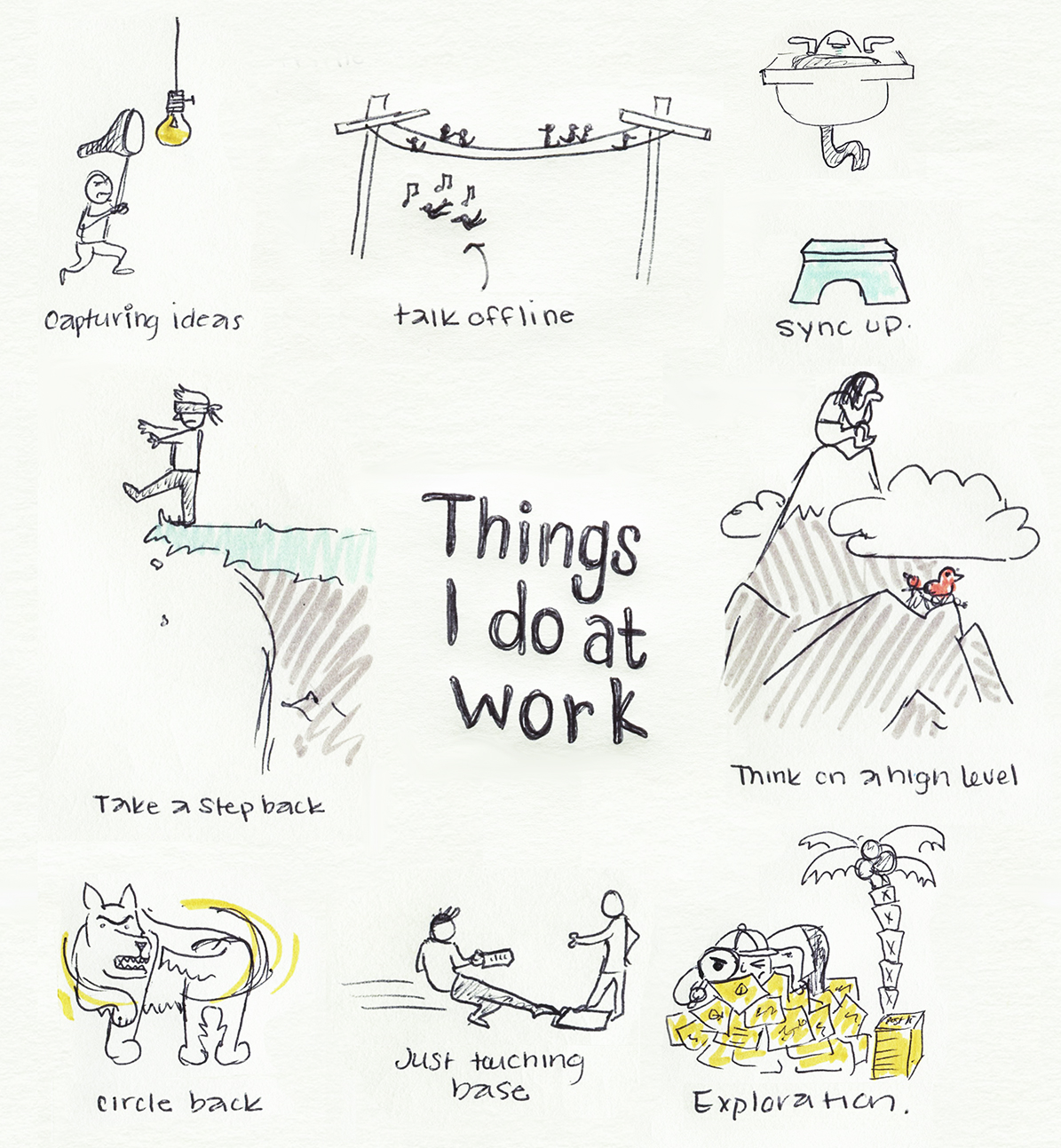We were generating a list of jargon today and it reminded me of this list I started two years ago when I worked in big tech of words I wish I didn’t know and use. As someone who enjoys linguistics and knows that words move through cultures, I shouldn’t be judge myself as harshly as I do.
action items: List of things that are agreed to be done. Often the accomplishing these actions means delegating work and then never following up. (I use this all the time now)
Ex: “I’ll take the action to follow up with Dave.”
bio-break: To take a break from a long meeting because of biological needs like food, water, or to use the bathroom. Perhaps once a joke, now used in earnest. (I might be the only person who doesn’t like this phrase. Why can’t it just be a break? It sounds like the default is a technology break and we are sad we are human??)
deck: A presentation, like one created in Powerpoint, Keynote, or Slides
MVP: “Minimum Viable Product,” a technically limited version of your product that has a poor user experience that your team never updates.
Ex: “Yeah, that’s the ideal case, but for the MVP we don’t need to support that core use case.”
microkitchen: (abv. MK) the break room in the office. Free snacks and drinks are taken to (usually) be hoarded at one’s desk. This common area often does not actually have seating because a full cafeteria is available to employees as well.
parking lot: The metaphorical space where ideas that would derail the current discussion topic go. The speaker is promised that “parking lot topics” will be revisited later. They will not.
ping: To message someone. There is no reason we needed to change this word. Where did this come from? Someone tell me.
standup: A meeting that does not deliver on its promise of brevity in which all participants scramble to think of (1) something to say and (2) how the can reasonably fluff the previous day’s activity. Each member is to report on what they did the previous day, what they plan on doing today, and if there are any blockers. Only the product person listens to what everyone says.
-strategy: When used as a suffix to a role or title it is meant to indicate that the person no longer liked doing the work people expected from their original job title.
timebox: To limit the time you spend on executing work to what the team considers ‘good enough.’
Ex: The designer agreed to timebox their effort to an unreasonably limited time, 2 hours, but actually they would work on it to their hearts content and the true hours they spent on it would die with her—I mean “them”.

vision: a statement so vague that there can be no disagreement.
Ex: “Our vision is to provide a better ice cream experience to users than our competitors”
Phrases that haunt
to ‘circle back’: Used both to indicate that you want to talk about something later (“Let’s circle back to this”) or to politely force the conversation to redirect (“to circle back to ___”).
Etymology: Circles remind one that days are an endless loop of the same meetings. There is no beginning or end and everything comes back to ML/AI/data integration.
to ‘talk offline’: to discuss something outside of the current meeting, but still not necessarily without the use of technology. This phrase is often invoked by stating exactly what you’re going to discuss anyway: “I disagree, but let’s talk offline.”
to ‘sync up‘: Used in place “meet up” even though it’s not any shorter. Typically used when the speaker doesn’t want to schedule, prep, or plan the meeting themselves.
Ex: “Yeah, I agree that’s a problem, let’s sync up next week”
title illustration is a doodle I’ve shared before

